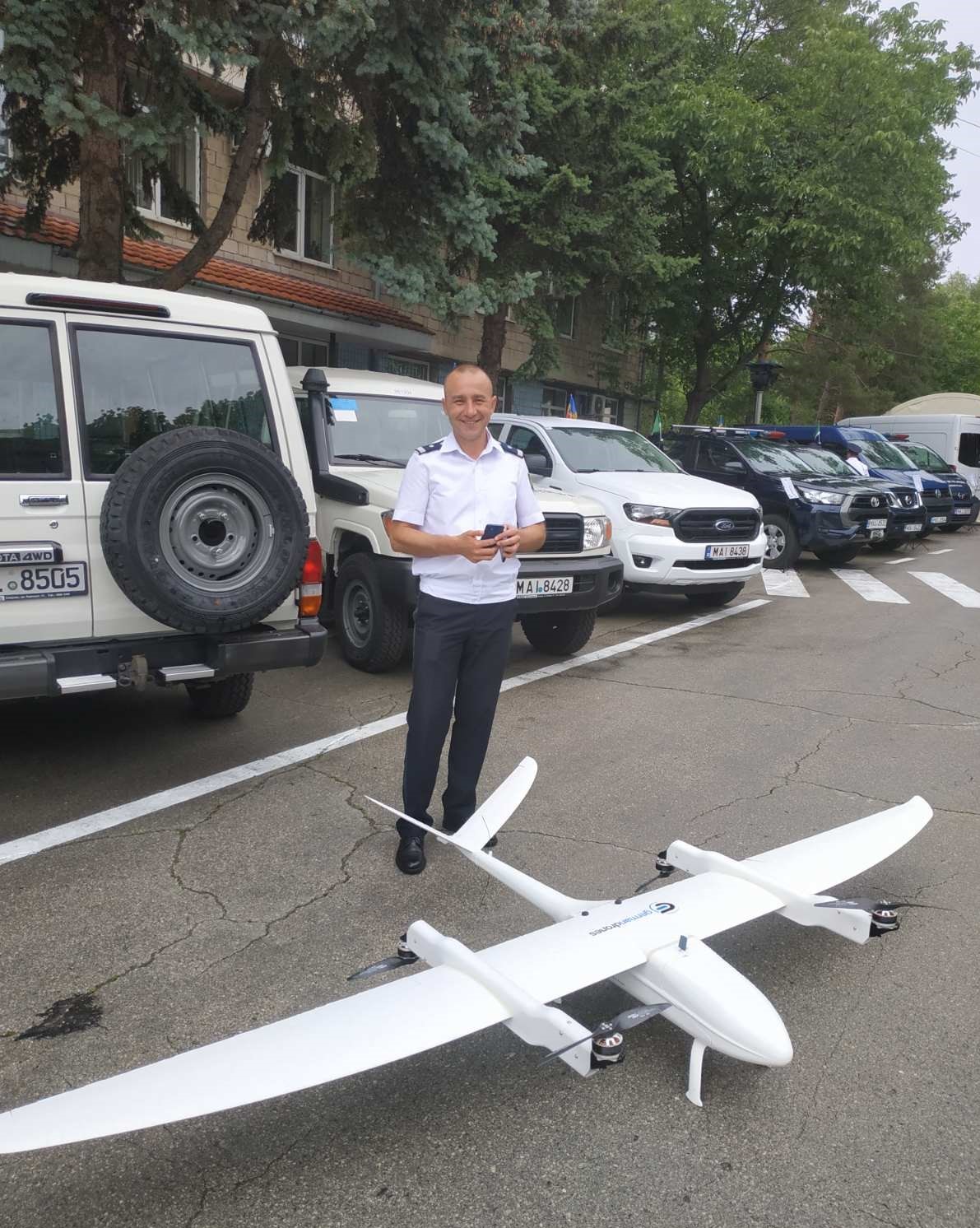Serghei Dziuba always dreamed of becoming an airplane pilot, but with no academy offering aircraft pilot studies in Moldova at the time, his dream was never realized. Instead, Serghei joined the Moldovan Border Police after his stint with the military, serving 21 years in what is largely considered a popular choice for young recruits. During this time, Serghei was able to climb the career ladder, becoming a Senior Officer of the Operational Management General Directorate of the General Inspectorate of the Border Police (GIBP) of the Republic of Moldova.
Through the project entitled ‘Novel concept of relocatable aerial surveillance for border security’, funded by the EU and contracted through the MPF, Serghei is the closest he has ever been to his dream, although instead of being onboard an aircraft, he is instead operating a remotely piloted aircraft system.
“I am glad to be able to gain this experience through this project. I have worked for the Border Police of the Republic of Moldova for 21 years.” It’s been a long-held dream of mine to become an air pilot. Thanks to the project, I have the opportunity to achieve my dream of becoming a pilot, but in this case, as a pilot of an Unmanned Aerial Vehicle (UAV),” said Serghei.
The ‘Novel concept of relocatable aerial surveillance for border security’ project is implemented by the Lithuanian Vilnius Gediminas Technical University (Vilnius Tech) in cooperation with the Estonian Academy of Security Sciences (EASS). The project aims to strengthen Moldova’s aerial border surveillance capability to counter irregular border crossings and associated risks. In the framework of the project, Vilnius Tech and EASS are conducting training sessions for the GIBP on the use of new pilot solutions for re-locatable mobile systems with aerial surveillance of border security. Serghei is one among 20 trainees from the GIBP who are being trained to become pilots of Unmanned Aerial Vehicles (UAV), or in other words, drones.
The project is timely as the region has seen a rise in the trafficking of human beings, contraband and illicit products, which has warranted a need to focus intensely on the protection of the border to safeguard national security. The project was also designed to respond to the need to act swiftly and efficiently as tactical drones are the perfect supplement to the monitoring tasks of ground security teams. Currently, surveillance of the country’s border is carried out through fixed surveillance systems, ground sensors and land vehicles, but this is insufficient to cover a large perimeter of the border area. The project addresses this need by the Moldovan Border Police through the purchase of small drones, which enables significant support in patrolling areas inaccessible to patrol agents, reducing agent response time and increasing the safety of patrol agents working in unsafe areas of the border.
Serghei sees himself carrying out a vital national duty for his country, made possible by the training. “I consider the training relevant with respect to the Moldovan Border Police needs. Each training mission is a real adventure for me. UAVs allow me to take real-time, high-quality photos and video feeds of the border area. I can track irregular activities such as border-crossing attempts of intruders, contrabandists, traffickers and poachers, through dense woods and rugged terrain as a result of the new pilot solutions”.
“I am constantly involved in different operations at the border using the drone, which under normal circumstances on the ground would not have been possible”, he adds. “In my view, adding remote-controlled drone technology to existing border surveillance tools is an effective solution for tracking illegal activities and securing our borders. In this way, such technologies can complement and work together with border management personnel to prevent and combat organized crime and illegal migration.”
It is always welcome when individual aspirations and national needs align, as is the case here where Moldova’s security is strengthened, and Commissioner Serghei Dziuba’s dream of piloting is at least partially realized. The ‘Novel concept of relocatable aerial surveillance for border security’ project is just one of a series of border management and security-related projects funded under the MPF. The MPF is committed to enhancing the border control and surveillance capacity and improving border systems of priority partner countries of the EU.
More information on the project is accessible here.

